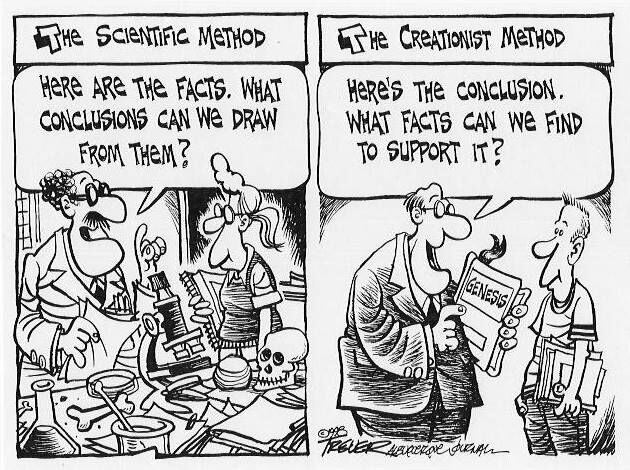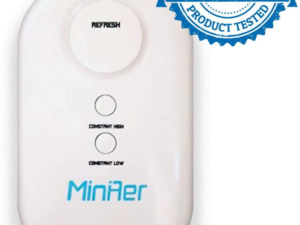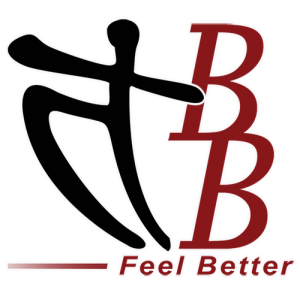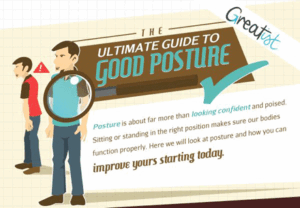Ice Science is Hot Stuff
One of the most common questions we get is; “Should I use ice or heat?” Despite all the information readily available from “Dr. Google”, people remained confused about what is the best approach. It’s really no wonder that there is still such a divide to what seems to be a straight forward question. Either ice helps or heat helps, right? Well, it depends.
Today, when science is misunderstood and constantly ignored more than professional wrestling, it’s harder than ever to understand what are facts and what are ‘alternative’ facts. Too often, we try to find the facts that best support our own conclusions, instead of starting with the facts and drawing conclusions from them.

What if I told you that the doctor who originally coined the acronym of RICE (rest, ice, compression & elevation) back in 1978, publicly recanted this antiquated approach? In 2013, Dr. Gabe Mirkin completed a study where 22 scientific articles found almost no evidence that ice and compression hastened healing over the use of compression alone, although ice plus exercise may marginally help to heal ankle sprains (The American Journal of Sports Medicine, January 2004;32(1):251-261). Yet, you talk to most professionals or roll up on any athletic field, you will see the approach of RICE as the go to protocol when treating acute injuries.
“When you damage tissue through trauma or develop muscle soreness by exercising very intensely, you heal by using your immunity, the same biological mechanisms that you use to kill germs. This is called inflammation. When germs get into your body, your immunity sends cells and proteins into the infected area to kill the germs. When muscles and other tissues are damaged, your immunity sends the same inflammatory cells to the damaged tissue to promote healing. The response to both infection and tissue damage is the same. Inflammatory cells rush to injured tissue to start the healing process (Journal of American Academy of Orthopedic Surgeons, Vol 7, No 5, 1999). The inflammatory cells called macrophages release a hormone called Insulin-like growth Factor (IGF-1) into the damaged tissues, which helps muscles and other injured parts to heal. However, applying ice to reduce swelling actually delays healing by preventing the body from releasing IGF-1.”
Ultimately, what I think most people fail to understand is why immediately grabbing some ice and popping a few anti-inflammatory pills is exactly what you DON’T want to do when you are injured.
INFLAMMATION IS GOOD!
It is our bodies primary defense against injury and infection. Reaching for ice and/or ant-inflammatory pills is the equivalent of wrangling up your neighbors to prevent the fire department from saving your home when it’s on fire.
Yes, TOO much inflammation can be bad. Yes, inflammation DOES indeed cause pain. However, without inflammation, your body would never heal from infection or disease. Therefore, you should consult a physician who is both aware of the science as well as your condition so they can properly administer sound treatment approach.
I wish the answer to the original question was as simple as “ice for x” and “heat for y”, but alas, nothing is straight forward when it comes to the “three I’s”; Injury, Infection & Individuals. To properly answer this question, there are a multitude of factors that must first be considered. In the meantime, I would strongly encourage you to read an article written by one of my colleagues which goes into great depths on this subject.
Ready to #feelbetter?
You're just a click away from a wicked good massage!
-

60 Minute Massage Gift Card
$170.00 Add to cart -

90 Minute Massage Gift Card
$255.00 Add to cart -

Mini Aer Small Room Air Purifier
$149.00 Add to cart -
Sale!

Thera-Pearl Sports Pack/Hot Cold
Original price was: $14.99.$12.99Current price is: $12.99. Add to cart -

3 Somadome Sessions Gift Card
$135.00 Add to cart -

TheraBand CLX Connective Loop
$14.99 Select options -

6 Somadome Sessions Gift Card
$270.00 Add to cart -
Sale!

Biofreeze
Original price was: $14.99.$12.99Current price is: $12.99. Add to cart
Passion Mountain
I was at an event recently and was asked by somebody how I could STILL be so passionate for what I do. He said, “What I mean is that you talk about what you do with the passion of child flipping through a new pack of baseball cards. I wish I was that passionate about…
Read MoreFish You Should Scale Back On
New Englander’s love their seafood and we deepen our love affair every summer when our favorite crustaceans, ‘lobstah’ is a plentiful. But what is the best seafood for us and what are the ones that we should be staying away from regardless of how yummy they may be? Monterey Bay Aquarium has combined data from…
Read MoreSports are a Great Metaphor
It’s no secret that my life has always revolved around athletics. From my early days playing pop warner football, through my college years of lacrosse and on into the various community leagues since, being part of a team has always been where I feel most comfortable. What I enjoy most about being part of a…
Read MoreWhat is an Expert?
“An expert is someone widely recognized as a reliable source of technique or skill whose faculty for judging or deciding rightly, justly, or wisely is accorded authority and status by their peers or the public in a specific well-distinguished domain.” – Wikipedia This past month I flew to Atlanta to present a few classes in…
Read MoreThe Power of a Hug
Originally Posted 5/1/2014; following the 1 year anniversary of the Boston Marathon Bombings and our mission to rebound after these horrible attacks on our city. We helped orchestrate the ‘One Run for Boston’; a 3328.2 NON-STOP running relay from LA to Boston, raising over $500K for the victims and survivors of the events of 4/20/2013.…
Read MoreTips from the Table
Without fail, every marathon season, I am asked by my patients, what kind of advice I would offer up to them as they prepare to run the Boston marathon. I first admit that I have never (nor will ever) run a marathon, but given my unique insight of spending 1000’s of hours alone in a…
Read MoreShoulder Impingement
The glenohumeral joint is a highly complex articulation. It has the greatest range of motion of any joint in the body. However, its increased motion occurs at the expense of stability, requiring the soft tissues to play a more critical role in maintaining joint integrity. As a result of increased mechanical demands, numerous soft-tissue injuries…
Read MoreTrain, train, train. Train of fools.
In my seventeen years as a massage therapist, I am still amazed by some of the things I see in my office. Being situated 1/10th of a mile from the finish line of one of the most prestigious marathons in the world, the Boston Marathon, we see more than our fair share of runners coming…
Read MoreAchilles Tendon Disorder
Achilles Tendon Disorder Massage therapists see many clients with active lifestyles. Running, jumping, dancing, climbing, or any number of other activities can put serious stress on the Achilles tendon (AT). AT disorders also can contribute to biomechanical disorders in the foot and lower extremity. That is why it is important for the massage practitioner to…
Read More


